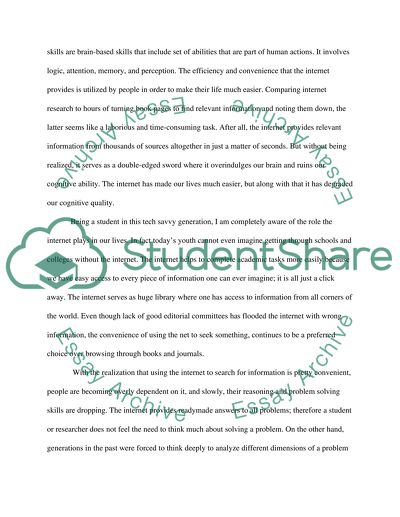Cite this document
(“Does the internet degrades its users's cognitive quality Essay”, n.d.)
Does the internet degrades its users's cognitive quality Essay. Retrieved from https://studentshare.org/journalism-communication/1478566-does-the-internet-degrades-its-users-s-cognitive
Does the internet degrades its users's cognitive quality Essay. Retrieved from https://studentshare.org/journalism-communication/1478566-does-the-internet-degrades-its-users-s-cognitive
(Does the Internet Degrades Its users'S Cognitive Quality Essay)
Does the Internet Degrades Its users'S Cognitive Quality Essay. https://studentshare.org/journalism-communication/1478566-does-the-internet-degrades-its-users-s-cognitive.
Does the Internet Degrades Its users'S Cognitive Quality Essay. https://studentshare.org/journalism-communication/1478566-does-the-internet-degrades-its-users-s-cognitive.
“Does the Internet Degrades Its users'S Cognitive Quality Essay”, n.d. https://studentshare.org/journalism-communication/1478566-does-the-internet-degrades-its-users-s-cognitive.


